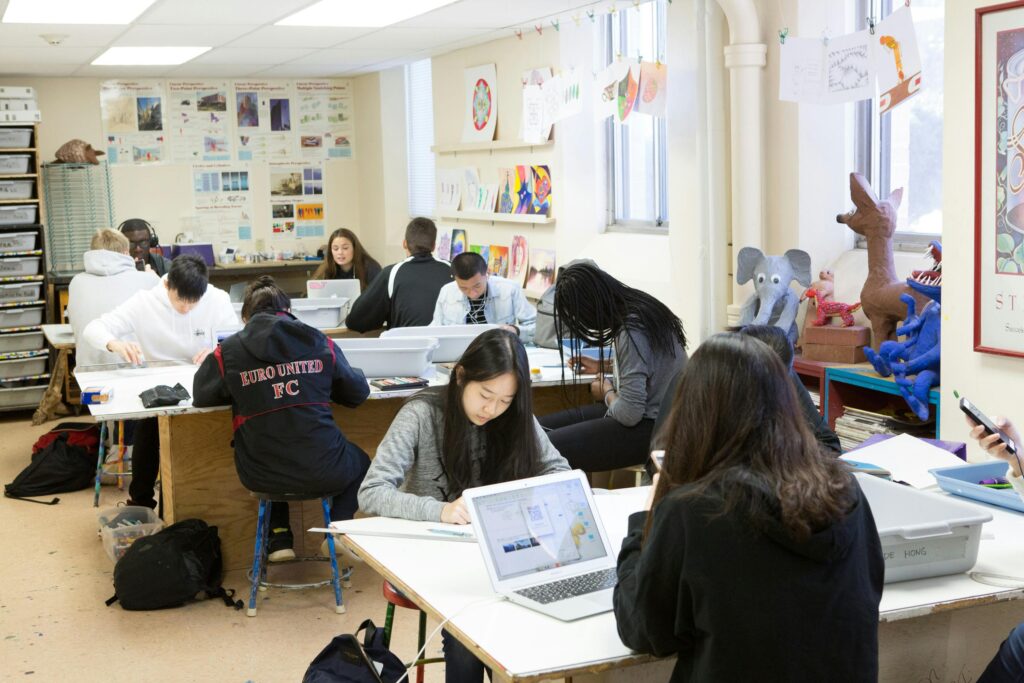
For many homeschooling families, measuring progress can feel like a challenge. Standardized tests are often seen as the default method, but they don’t always capture a child’s true growth. Homeschooling provides the freedom to look beyond test scores, using flexible and personalized strategies that reflect a learner’s strengths, challenges, and real-world skills.
Beyond the Limitations of Standardized Tests

Standardized testing offers a narrow snapshot of a student’s ability, often prioritizing memorization over deeper learning. Homeschoolers can instead evaluate progress in ways that emphasize understanding, creativity, and skill-building.
One option is portfolio assessment, which involves collecting samples of work over time. This might include essays, projects, artwork, or even progress logs from typing practice sessions. Portfolios allow parents and students to see how knowledge and skills have developed across subjects, providing a fuller picture than test scores alone.
Another valuable method is performance-based assessment. This approach evaluates how students apply what they’ve learned to real-world tasks—like giving a presentation, writing a research report, or completing a science experiment. Not only does this method assess comprehension, but it also builds confidence in applying knowledge outside of textbooks.
Master Typing & Digital Skills with Typesy!
Go beyond keyboarding—Typesy helps you boost digital literacy, productivity, and efficiency in today’s tech-driven world.
Practical Tools for Measuring Homeschool Progress

- Regular discussions and reflections. Parents can hold weekly conversations with their child to talk about what was learned, what was challenging, and what new goals should be set.
- Checklists and rubrics. Creating rubrics for projects or daily tasks ensures learners know what’s expected while giving structure to assessments.
- Digital tracking tools. Apps and online platforms help organize progress, track completed lessons, and monitor growth. Alongside these, teaching digital organization skills equips students with tools they’ll need in future academic and professional settings.
- Observation and documentation. Parents can note patterns in problem-solving, creativity, and persistence. This method values process over outcome, highlighting growth in areas that tests often overlook.
- Self-assessment. Encouraging students to evaluate their own work builds responsibility and independence. Pairing this with lessons on safe online habits ensures they grow into thoughtful and responsible digital citizens.
The key to all of these strategies is consistency. Tracking learning regularly—rather than waiting for a test—makes progress more visible and meaningful.
Building Confidence Through Personalized Evaluation
Assessment should feel supportive, not stressful. When homeschoolers measure progress in flexible ways, students often feel more motivated and confident. For example, seeing their improvement in typing speed and accuracy over a semester can be just as satisfying as receiving a good grade on a test. These small, steady wins show learners that their efforts are paying off.
By focusing on growth rather than comparison, homeschool families create an environment that nurtures lifelong learning. Students gain the ability to self-reflect, set personal goals, and celebrate their achievements—all essential skills for success beyond school.
Not on Typesy Yet? You're Missing Out!
Master typing, boost productivity, and enhance digital literacy with Typesy—the leading platform for adaptive and engaging typing education. Whether you're an individual learner, a homeschool educator, or managing a classroom, Typesy has the perfect solution for you!
Choose Your Ideal Experience:




